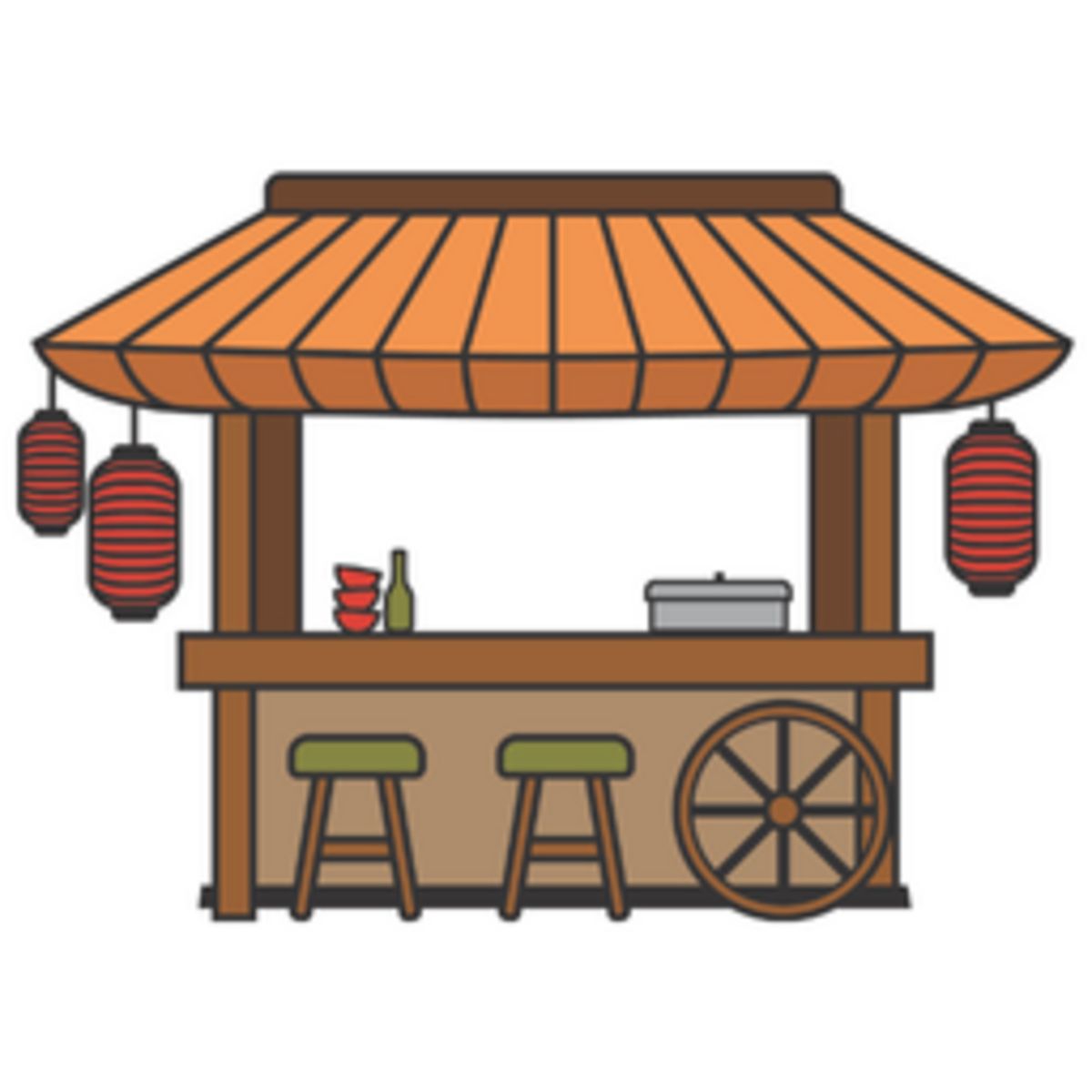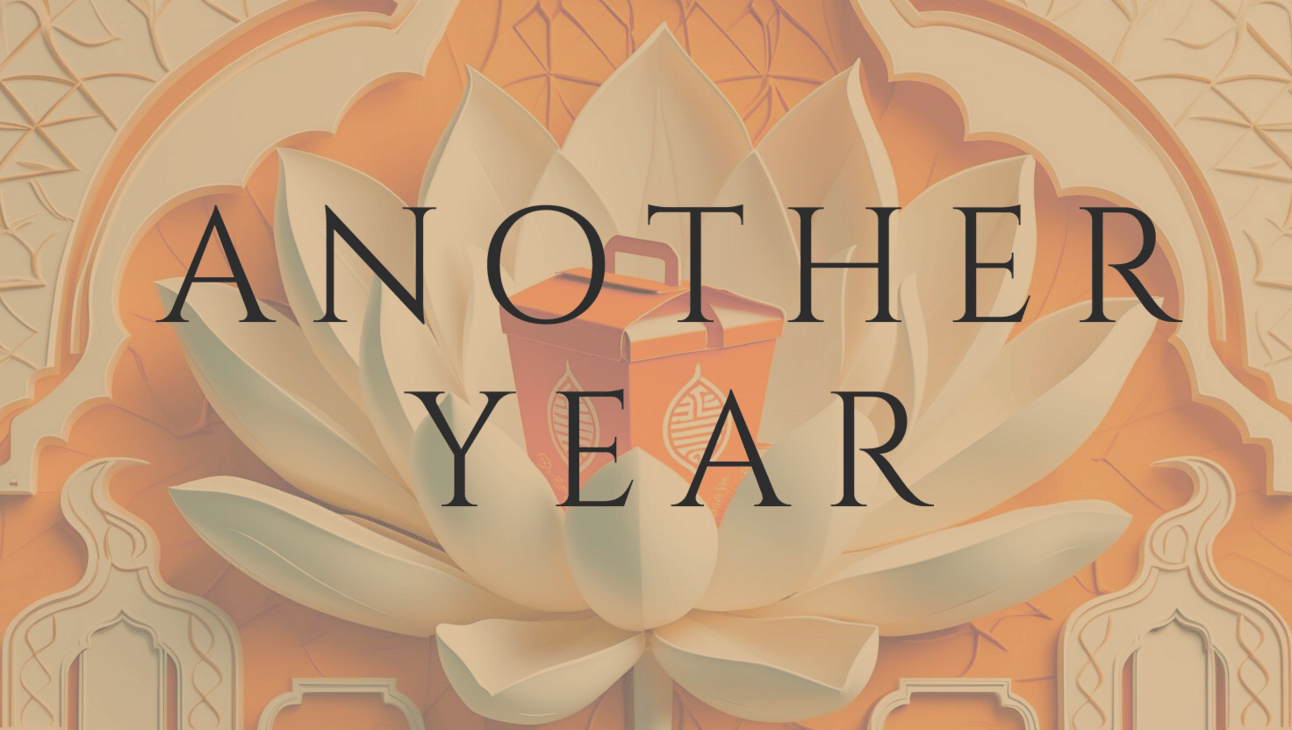There's a scene at the end of the last season of White Lotus that's been sticking with me lately. Three female friends are wrapping up their week at the resort, and while two of them seem content with their lives, the third—Laurie—says something that cuts deep. She wasn't happy with the week, she admits, and it made her sad because at 40, she's having to justify the choices that brought her to this moment.
The conversation is layered because you can tell there's a complex world of unexpressed sentiment her words. She's gone so far down the road of her life that she has to rationalize why she's here—why work didn't fulfill her the way she thought it would, why love didn't pan out, why having kids didn't complete her in the way she'd imagined. She's reached that point where you have to make peace with the gap between the life you planned and the life you're actually living.
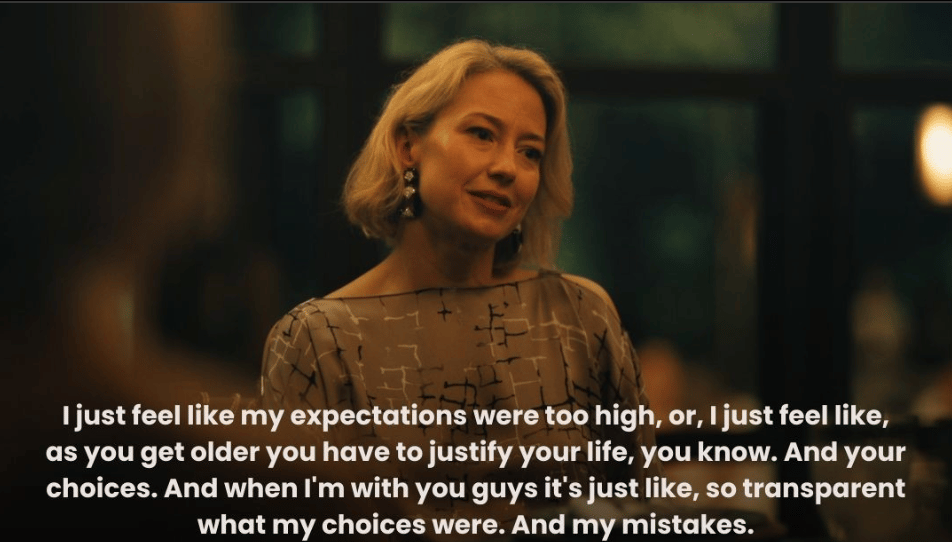
The Weight of Justification
As I'm reflecting on the eve of my own birthday I recognize a similar pattern in the lives of people around me, especially those who are single in their thirties. There comes a moment when you have to justify the sacrifices you've made, the standards you've maintained, the path you've chosen to walk.
You can blame culture, environment, timing, or circumstance, but ultimately, justifying these choices becomes a way to sleep at night—a way to say, "I'm okay with what has happened." Even if your younger self wouldn't recognize where you've ended up, you have to find a way to make it okay. You HAVE to be okay with it. Because that's the only way to come to terms with all the time you spent chasing whatever it was you were chasing—the career, the passions, the Mileage Points, the promotion, the stories.
I don't think I'm quite where I thought I'd be at, but I'm okay. I have to be okay with where I am. I'm moving toward something, and maybe that's enough for now.
Orange Chicken: On Loving What You Love
Here's the thing about justification—some things in life don't need it. Sometimes you like what you like for reasons that are completely inexplicable, and that's perfectly fine. The reasons why you're drawn to certain things, why they bring you comfort or joy, don't need to make sense to anyone else.
For me, that inexplicable love is orange chicken from Panda Express. The Asian American staple that serves food that's nothing like actual Chinese food, and I'm completely fine with that.

an Asian American staple diet
This cooklikeimbook version is obviously an adaptation of some classic dish, air-fried instead of deep-fried, chicken breast instead of thighs, with homemade orange sauce that looks remarkably similar to the original thing. But it's not the same, and I'm not paying inflated prices for nostalgia either. I can make my own version that hits all the right notes.
There's something deeply satisfying about the way it comes in those white takeout cartons, the way the sauce clings to each piece just right. My regular order is always the same: mixed fried rice with two entrées—orange chicken and either eggplant or potstickers, depending on my mood.
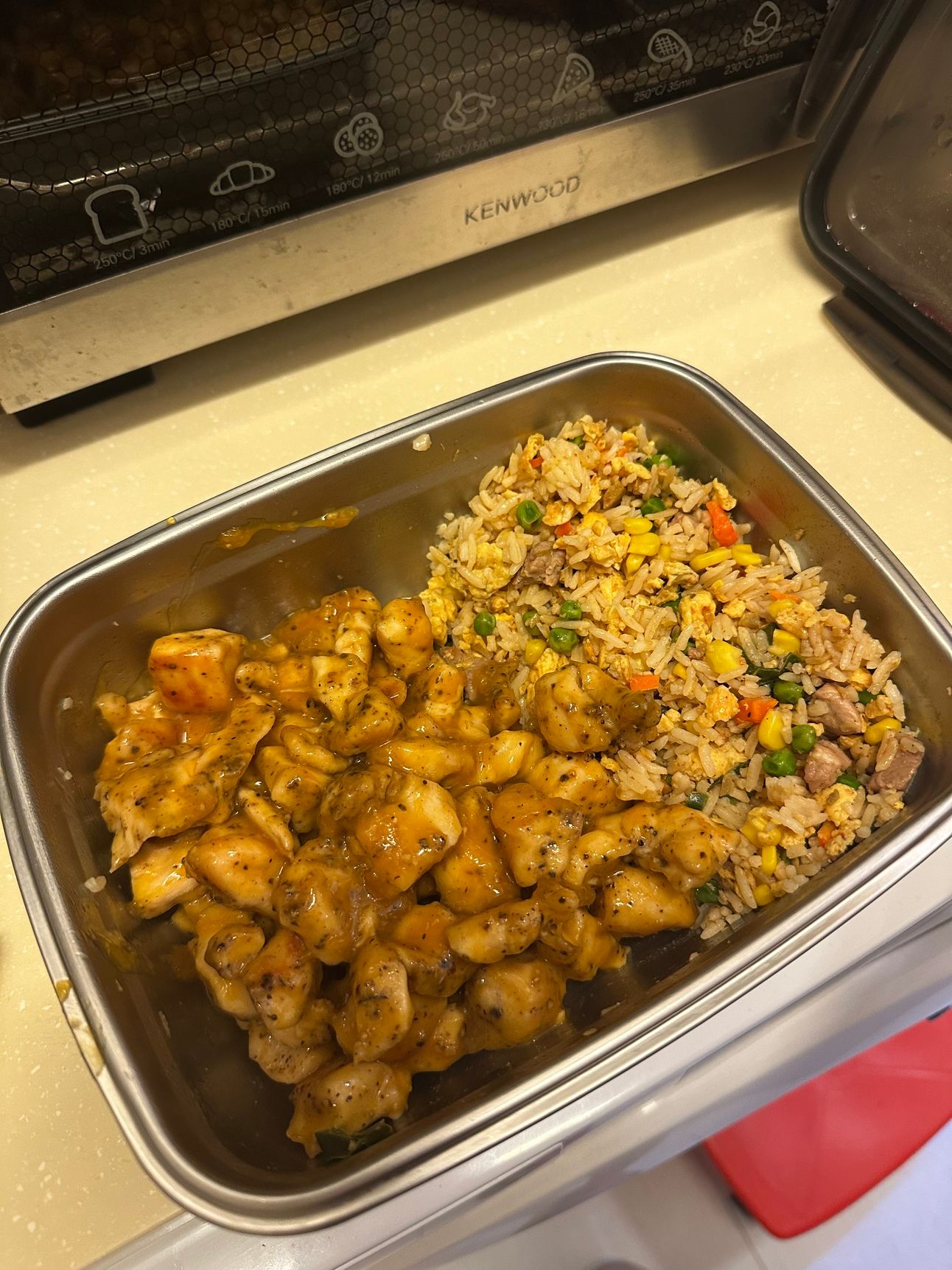
my version of a panda express 1 entree bowl
I have vivid memories of ditching class my senior year of high school to get Panda Express because it was the closest affordable fast food joint nearby. Every time I have a layover at a US airport, if there's a Panda Express in the food court, I end up getting my high school staple. It's become this reliable constant in an otherwise unpredictable travel experience.
The older you get, the more you realize that sometimes all you need is orange chicken and a fortune cookie to make your day a little bit better. It's not sophisticated, it's not authentic, it's not impressive—but it works (for me). People seem surprised when I tell them that one of my most memorable meals during my recent trip back to the US was my Panda Bowl at Panda Express.
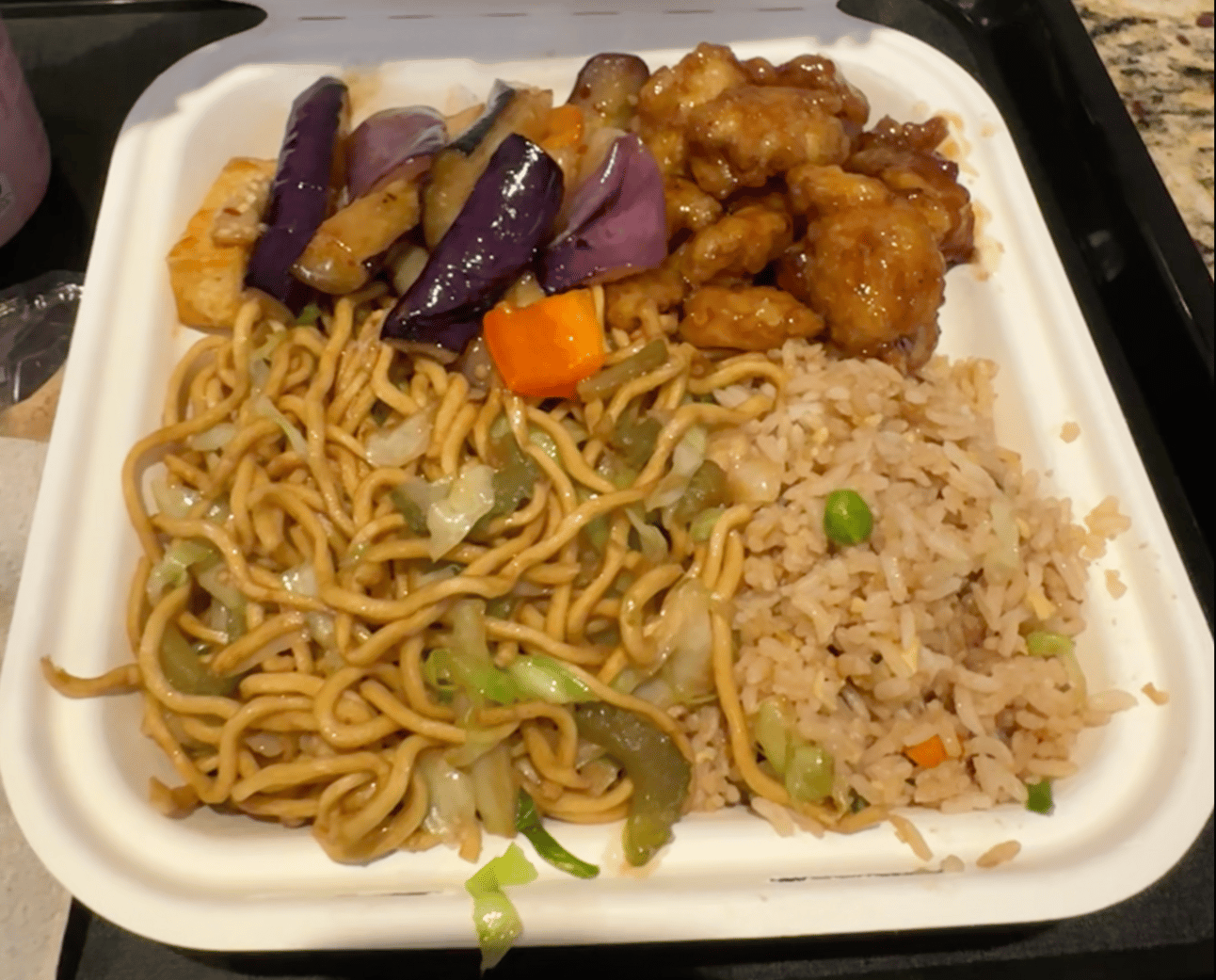
the real thing
It doesn't need to represent anything beyond what it is—something that brings me comfort and satisfaction. This is what I mean about not needing justification. I don't have to defend why I find joy in this particular combination of sweet, sticky sauce and crispy chicken. I don't need to explain why airport food courts make me nostalgic or why white takeout containers feel like home in a way that fancy restaurants sometimes don't. You like what you like. Sometimes that's enough of a reason.
A Letter to Younger Friends
I'm writing this particularly for the younger readers of this newsletter—friends in their twenties who are currently making the sacrifices that will require justification later. There's something valuable about advice from someone who's just far enough down the road to see what's coming, rather than from parents who are 20-30 years ahead and whose experiences feel too distant to be relevant in today’s world.
If you're in medical school, law school, pursuing an advanced degree, or choosing not to do any of those things—if you're changing careers or moving to a new city—you're going to look back on these choices someday. You're going to reach a stage where you'll need to justify the path you're walking right now.
Understanding this isn't meant to create anxiety; it's meant to help you make sense of why you're doing what you're doing. When you're in your late twenties, grinding through professional development and trying to build something meaningful, it can feel endless because the payoff hasn't materialized yet. The investments you're making in yourself haven't started paying dividends.
I have no idea what the next few years will bring for any of us—emotionally, economically, geopolitically, personally. But I do know that having a framework for understanding your choices, even the difficult ones, will serve you well when the time comes to look back.
The Fine Line Between Truth and Narrative
Here's what I've learned about justification: the more you tell yourself a story, the more comfortable you become with it, even if the story started as a half-truth. The more you shape the narrative, the more it becomes your truth. And slowly, this process of storytelling becomes something remotely we call confidence.
There's a fine line between crafting a narrative that acknowledges the real events of your life without making yourself a victim and still ensuring you remain the hero of your story. I think that's what confidence really is—having had enough time to justify your choices and live with their consequences, deciding what you're willing to admit and what you'd rather leave unexamined.
It's not perfect, but I think we all try to be the heroes of our own stories. And maybe that's exactly as it should be.
In the spirit of Izakaya feedback, what would you like to see more of in the upcoming newsletters?
Savoring this moment with you,
Kevin L
Seeking impartial news? Meet 1440.
Every day, 3.5 million readers turn to 1440 for their factual news. We sift through 100+ sources to bring you a complete summary of politics, global events, business, and culture, all in a brief 5-minute email. Enjoy an impartial news experience.
